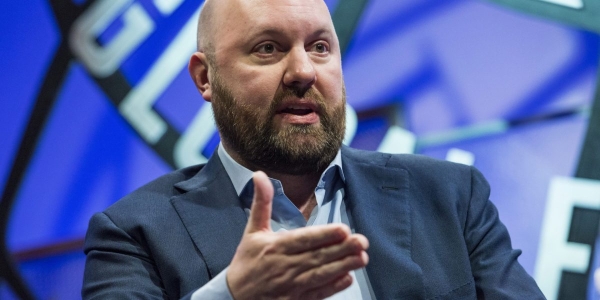
Marc Andreessen isn’t worried about artificial intelligence taking people’s jobs. The way he sees it, technological innovation isn’t allowed to disrupt much of the economy anyway.
The cofounder of venture capital giant Andreessen Horowitz laid out his thoughts in his newsletter this weekend.
In less regulated sectors of economy, Andreessen argues, “technology whips through them, pushing down prices and raising quality every year.” Think computer software, cellphone services, and TVs.
But in other sectors, technological innovation is “virtually forbidden,” he writes.
“The prices of education, health care, and housing as well as anything provided or controlled by the government are going to the moon, even as those sectors are technologically stagnant,” he notes.
What’s more, very little is being done to address this problem, he writes: “We are heading into a world where a flat screen TV that covers your entire wall costs $100, and a four year college degree costs $1 million, and nobody has anything even resembling a proposal on how to systemically fix this.”
Over time, he adds, the prices of regulated, non-technological products rise, while the prices of less regulated, technologically-powered products fall.
“Which eats the economy? The regulated sectors continuously grow as a percentage of GDP; the less regulated sectors shrink,” he writes. “At the limit, 99% of the economy will be the regulated, non-technological sectors, which is precisely where we are headed.”
Andreessen has made a similar argument before, though this weekend he used it in a different way. In 2017, speaking at a Code Conference, he divided the economy into a fast sector and a slow sector. The former is being “eaten” by software, as he famously put it in a Wall Street Journal op-ed in 2011, and becoming more efficient, with prices falling accordingly.
But in the slow sector—eldercare, childcare, healthcare, education, construction, and government—prices are rising fast and there’s almost no productivity growth as measured by economists. “Left unchecked, those sectors are basically just going to eat the economy,” he said.
In this weekend’s post, Andreessen employed the argument to discredit the “panic” over artificial intelligence taking jobs, and the idea that A.I. is somehow different from past technologies perceived to be threatening employment.
“AI cannot cause overall unemployment to rise, even if the Luddite arguments are right this time,” he writes. “AI is simply already illegal across most of the economy, soon to be virtually all of the economy.”
